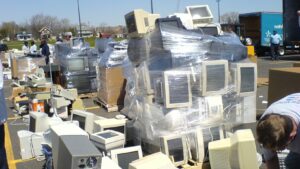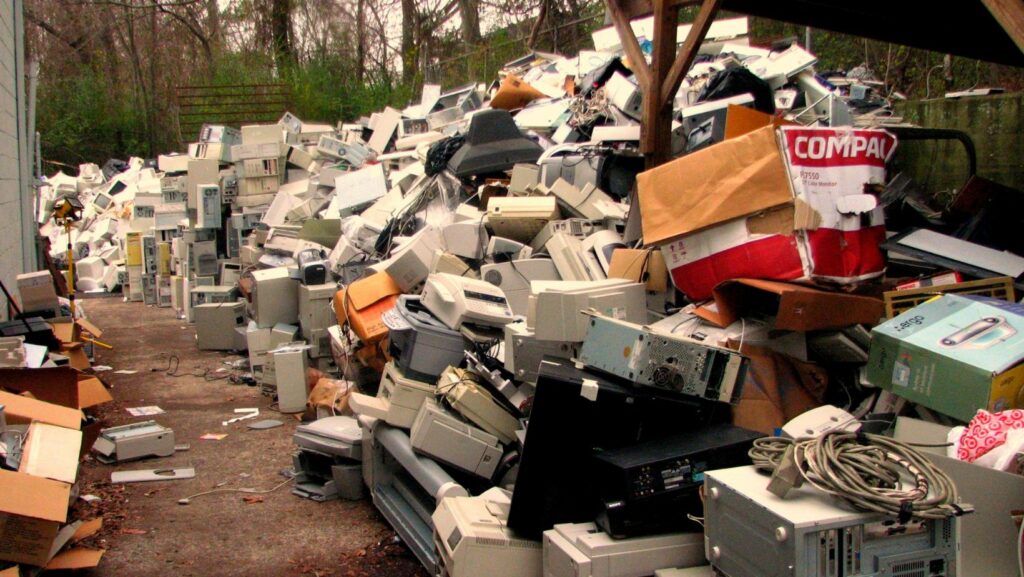In the digital age, electronic waste, or ‘e-waste’, is a rapidly online platform that growing problem. From old cell phones to outdated laptops, we’re all guilty of having a few pieces of tech gathering dust in our homes. But what’s the best way to dispose of these items responsibly?
Where to Dispose Electronics Near Me

Several local options exist for electronics disposal, presenting an environmentally-friendly alternative to standard waste management.
Firstly, municipal electronic recycling programs stand as an ideal venue for device discarding. These facilities regularly organize e-waste collection events, providing the community with a convenient outlet for safe electronics disposal.
Secondly, local electronics retailers offer take-back schemes. Stores like Best Buy and Staples support recycling initiatives by accepting used electronics, regardless of the purchase location.
Thirdly, specific electronics manufacturers facilitate recycling programs of their own, focusing on their products only. Apple and Dell, for example, operate device-specific take-back schemes.
Understanding Electronic Waste Disposal
Electronic waste disposal is a matter that requires concerted effort. The focus ranges from individual responsibilities to collective actions from institutions and industries.

Proper disposal of electronic waste holds a significant place in the environmental conversation. Informal methods of disposal pose risks, pollutes ecosystems, and lead to loss of valuable resources. When electronic devices end up in landfills, toxic materials like lead, mercury, and cadmium can seep into the ground and water supplies, posing severe environmental and health risks.
Moreover, improper disposal squanders valuable materials like gold, copper, and palladium that could be recovered and reused from e-waste. According to the U.S. Environmental Protection Agency, recycling one million cell phones can recover 35 thousand pounds of copper, 772 pounds of silver, and 75 pounds of gold.
Types of Electronics to Dispose Of
Most electronic devices can be considered for disposal if they’re no longer functional or relevant. Such devices often include:
- Computers: Desktops, laptops, and their components (hard drives, monitors, peripherals, etc.)
- Phones: Landline phones, smartphones, and their accessories.
- Entertainment devices: TVs, sound systems, radios, gaming consoles, and other entertainment gadgets.
- Household appliances: Microwaves, washing machines, vacuum cleaners, and other electrical appliances.
- Miscellaneous electronics: Printers, fax machines, cameras, and other electronic items.
How to Prepare Electronics for Disposal
Despite the various types of electronics to be disposed, a common preparation process exists. First, backup any essential data. Documents, contacts, and photos, for instance, can be stored in external storage devices or cloud services. Next, perform a factory reset. For example, laptops, smartphones, and tablets have this option in their settings. It’s vital for privacy, as a factory reset eliminates personal information.

Moreover, consider removing batteries before disposal. Certain types, such as lithium-ion batteries found in laptops and mobile phones, pose fire risks if improperly handled. Additionally, rechargeable batteries found in handheld games or power tools, can be recycled. Lastly, carefully packaging electronics, like few layers of bubble wrap around fragile items, enhances their protection during transportation.
Local resources, such as public e-waste disposal programs, often provide guidelines to prepare electronics for disposal. Adherence increases the efficacy of disposal processes and supports the goal of minimizing environmental damage caused by electronic waste.
Environmental Impact of Electronic Waste
Taking care of our planet means making informed decisions about how we dispose of our electronic waste. It’s not just about decluttering our spaces – it’s a matter of public health and environmental protection. When it comes to electronics, it’s vital to dispose of them in a responsible manner. This means utilizing local resources and following e-waste disposal programs. By preparing electronics properly for disposal, we’re not only protecting our personal data but also preventing harmful materials from contaminating our environment. Remember, every small action counts. So let’s make sure we’re doing our part to keep our environment safe and clean. Responsible electronic waste disposal is a task we all share, and together, we can make a significant impact.

